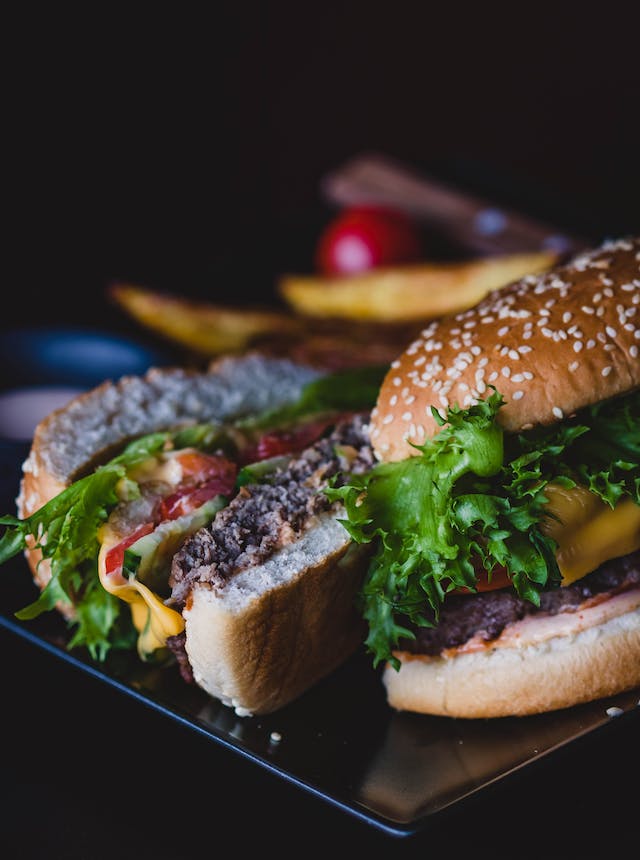Geschatte leestijd: 3 minutenResearchers from Brigham Young University have shown that stress can be just as harmful to the intestines as a poor diet. In female mice, at least.
“Stressed Intestines”
Reports about stress are never so enjoyable. Most people know that stress is bad in countless ways. But what do you do about it afterward? Stress often ‘happens’ to you from situations you can’t easily avoid. When we talk about (negative) stress, we often mean situations where we have to act beyond our capacity. Situations we have no control over. Reports on the adverse effects of stress, where you then think you can do little about, thus form a stress factor in themselves.
So, my apologies for this article about yet another evidence that stress has a negative impact on your health.
Laura Bridgewater of Brigham Young University discovered that female mice exposed to stress factors underwent changes in gut bacteria necessary for digestion and metabolic health. These changes resembled the adaptations gut bacteria show after eating a high-fat diet.
Stress can be harmful in a lot of ways, but this research is novel in that it ties stress to female-specific changes in the gut microbiota. We sometimes think of stress as a purely psychological phenomenon, but it causes distinct physical changes.
Bridgewater and colleagues from Shanghai Jiao Tong University in China selected a large group of 8-week-old mice. Half of them, both male and female, were placed on a diet high in fats (60% fats, 20% carbohydrates, and 20% proteins). In graph b, you can see what this did to the weight of the mice (red lines = high-fat diet). After 16 weeks, all mice were exposed to ‘chronic and unpredictable mild stress’ for 18 days.
Something like a month’s work at an average office, you might think. That’s true if you work somewhere where you have to sit on a wet chair for 18 hours, are forced to swim in cold or hot water for 5 minutes, the whole office tilts back and forth 18 times, or gets darkened while you’re forced to sleep in a brightly lit room at night. If that’s not enough to get stressed, you also hear the clicking sound of your dreaded boss’s heels all day and smell his bad deodorant. That’s a bit like the experience of the mice in the study.
Based on movements in an open space and in an elevated open maze (a commonly used method to measure behaviors in mice), it was determined how excited/anxious (anxiety test) the mice were. Both during any diet and later during the literal stress tests.
Then, the feces were examined for gut bacteria before and after the stress test to see how they were influenced by any diet and stress.
Mickey Stress vs. Minnie Stress
There were a few big differences between the genders. The males gained a lot of weight in the first week of the diet, whereas this started to increase in the females only in week three. The males following ‘the fatty diet’ showed less feelings of anxiety than the females. However, the most interesting thing was the different way the gut bacteria responded to stress.
In the female mice that had followed a normal diet, the researchers observed the same change in gut bacteria after the stress tests as was seen after a high-fat diet. However, they did not see this change in the male mice.
Although humans are not normally shaken in their cages or dumped into a maze, the researchers believe their findings are also relevant for humans.
In society, women tend to have higher rates of depression and anxiety, which are linked to stress. This study suggests that a possible source of the gender discrepancy may be the different ways gut microbiota responds to stress in males vs. females.
It has long been known that men and women react differently to stress, both hormonally and in terms of response in the nervous system. Now we know that our gut flora, and thus possibly also digestion and metabolism, can change in women under stress. As far as these results can be translated to humans, of course.
So, Stress?
We have written several articles about combating stress. We are mainly concerned about our sparingly built muscles and the influence of, for example, the stress hormone cortisol. As in the article ‘muscle breakdown due to stress.’ But the tips in there can also help you if you suddenly start worrying about your intestines.
There are countless ways to relieve stress. However, it starts with recognizing the importance of relaxation and stress relief. Something you need to make time for, just like training. Something you find out when you try to meditate for the first time and realize how difficult it is to do nothing.
References
- Laura C. Bridgewater, Chenhong Zhang, Yanqiu Wu, Weiwei Hu, Qianpeng Zhang, Jing Wang, Shengtian Li, Liping Zhao. Gender-based differences in host behavior and gut microbiota composition in response to high-fat diet and stress in a mouse model. Scientific Reports, 2017; 7 (1) DOI: 10.1038/s41598-017-11069-4
- Ali, N., Cooperman, C. & Pruessner, J. Sex and gender differences in the suppression of the stress systems: A potential link to anxiety and mood disorders? Psychoneuroendocrinology 61, 63, doi: 10.1016/j.psyneuen.2015.07.562 (2015).

